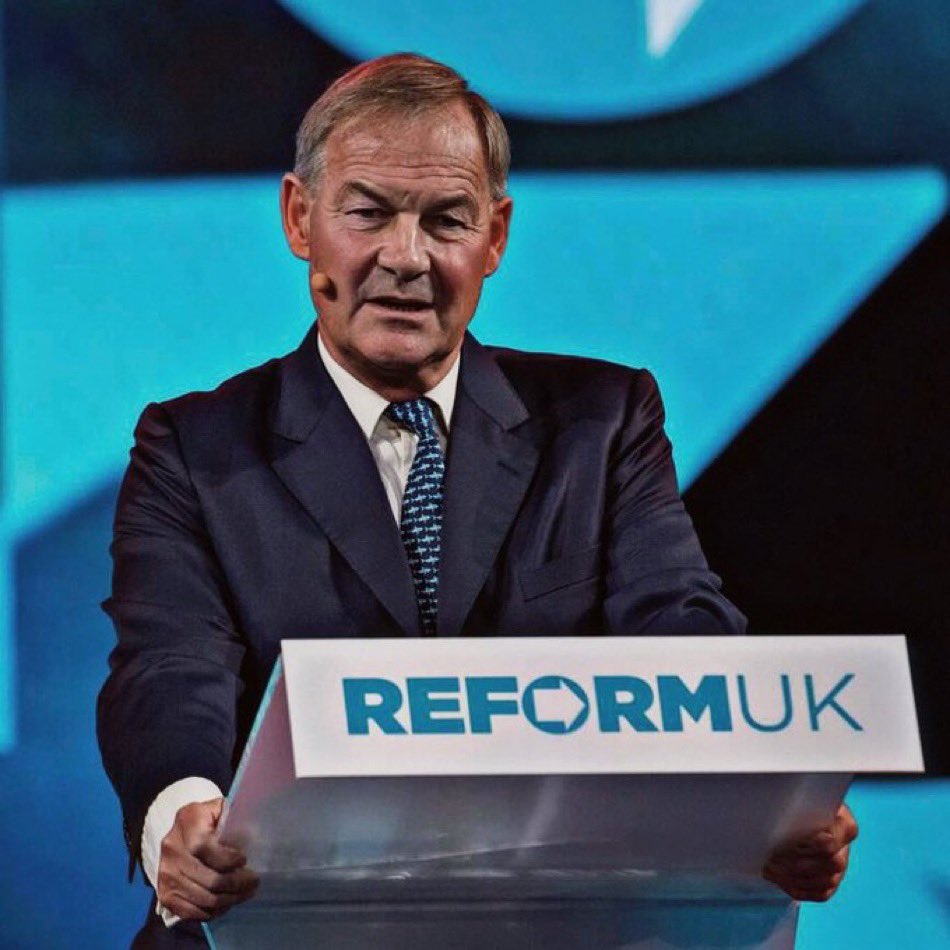Nigel Farage And The Future Of Reform UK In UK Politics

Table of Contents
Nigel Farage's Influence on Reform UK's Ideology and Strategy
Nigel Farage's imprint on Reform UK is undeniable. His strong Eurosceptic views, advocating for a complete break from the European Union, form the bedrock of the party's ideology. This is reflected in their staunch opposition to further EU integration and their focus on reclaiming national sovereignty. His leadership style, characterized by populist rhetoric and direct engagement with the public, has shaped the party's communication strategy.
- Policy Positions: Farage's influence is clearly seen in Reform UK's policies on immigration, where they advocate for stricter controls, and trade, where they prioritize bilateral agreements outside the EU framework.
- Communication Strategies: Reform UK utilizes social media extensively, mirroring Farage's own highly visible online presence. While this strategy has garnered attention, its effectiveness in translating online engagement into electoral success remains a subject of debate.
- Internal Dynamics: While Farage’s strong leadership has provided direction, it has also been associated with periods of internal tension and reshuffles within the party. This highlights the complexities of balancing decisive leadership with fostering internal cohesion.
Reform UK's Electoral Performance and Future Prospects
Reform UK’s electoral performance to date has been mixed. While they have secured some local council seats and attracted attention through targeted campaigns, their performance in general elections has been limited. This suggests that translating their strong online presence and fervent base into widespread electoral support remains a significant hurdle.
- Election Results: Analysis of their performance in recent local and European elections reveals pockets of support, particularly among voters disillusioned with the mainstream parties, but overall national impact has remained elusive.
- Voter Demographics: Their voter base predominantly comprises Brexit supporters and those dissatisfied with both the Conservative and Labour parties. Expanding this base beyond this core demographic is crucial for future success.
- Political Alliances: The party’s future prospects may hinge on its ability to forge strategic alliances or attract broader support, potentially by softening some of its more divisive stances to appeal to a wider electorate.
The Broader Political Context and Competition
Reform UK operates within a crowded and dynamic UK political landscape. The Conservative Party, Labour, and the Liberal Democrats all present significant competition for voters. Understanding how Reform UK differentiates itself from these established parties is crucial to assessing its potential.
- Policy Comparisons: Compared to the Conservatives, Reform UK often adopts a more hardline stance on Brexit and immigration. Against Labour, they position themselves as the true voice of working-class voters frustrated with the establishment. The Liberal Democrats, with their pro-EU stance, represent a stark ideological contrast.
- Key Political Issues: Issues like the economy, the NHS, and the cost of living heavily influence voters' choices. Reform UK must demonstrate its understanding and responsiveness to these concerns to gain broader appeal.
- Public Opinion: Public opinion polls provide valuable insights into voter sentiment and the potential for shifts that could benefit or harm Reform UK's growth. Consistent monitoring of public opinion is vital for effective strategic planning.
Challenges and Opportunities for Reform UK's Growth
Reform UK faces several challenges, including securing sufficient funding, managing internal divisions, and overcoming a perception among some as being overly focused on a narrow set of issues. However, opportunities exist to capitalize on voter dissatisfaction with mainstream parties and to focus on specific policy areas where they can offer compelling alternatives.
- Challenges: Financial limitations restrict the party's ability to conduct large-scale campaigns. Internal disagreements can create instability and undermine public confidence. Overcoming the perception of being a single-issue party focused solely on Brexit is vital for broader appeal.
- Opportunities: The current political climate, marked by economic uncertainty and disillusionment with established parties, presents an opportunity for Reform UK to gain traction. Focusing on specific policies like lowering taxes or reforming the NHS could attract broader support.
- Strategies for Growth: A more nuanced and inclusive communication strategy, alongside efforts to build wider coalitions and address a broader range of issues, are crucial for achieving sustainable growth.
Conclusion: The Future of Reform UK Under Nigel Farage's Leadership
The future of Reform UK remains uncertain. While Nigel Farage’s leadership has provided the party with a strong identity and significant media attention, translating this into consistent electoral success requires overcoming significant challenges. The party's ability to broaden its appeal beyond its core Brexit-supporting base, address a wider range of policy concerns, and manage internal divisions will be critical determinants of its future trajectory within UK politics. To understand the ongoing impact of Nigel Farage and the future of Reform UK in UK politics, further research into their evolving policies, electoral strategies, and public perception is essential. Stay informed by following reputable news sources and engaging in informed political discussions to better comprehend this party's influence on the UK's political landscape.

Featured Posts
-
 1050 V Mware Price Hike At And Ts Concerns Over Broadcoms Acquisition
May 03, 2025
1050 V Mware Price Hike At And Ts Concerns Over Broadcoms Acquisition
May 03, 2025 -
 Lee Andersons Attack On Rupert Lowe A Major Blow To Conservative Party Reform
May 03, 2025
Lee Andersons Attack On Rupert Lowe A Major Blow To Conservative Party Reform
May 03, 2025 -
 The Mohamed Salah Contract Situation A Detailed Analysis
May 03, 2025
The Mohamed Salah Contract Situation A Detailed Analysis
May 03, 2025 -
 Zayavlenie Makrona Usilenie Davleniya Na Rossiyu Iz Za Ukrainy
May 03, 2025
Zayavlenie Makrona Usilenie Davleniya Na Rossiyu Iz Za Ukrainy
May 03, 2025 -
 Emission Matinale Mathieu Spinosi Joue Du Violon
May 03, 2025
Emission Matinale Mathieu Spinosi Joue Du Violon
May 03, 2025
